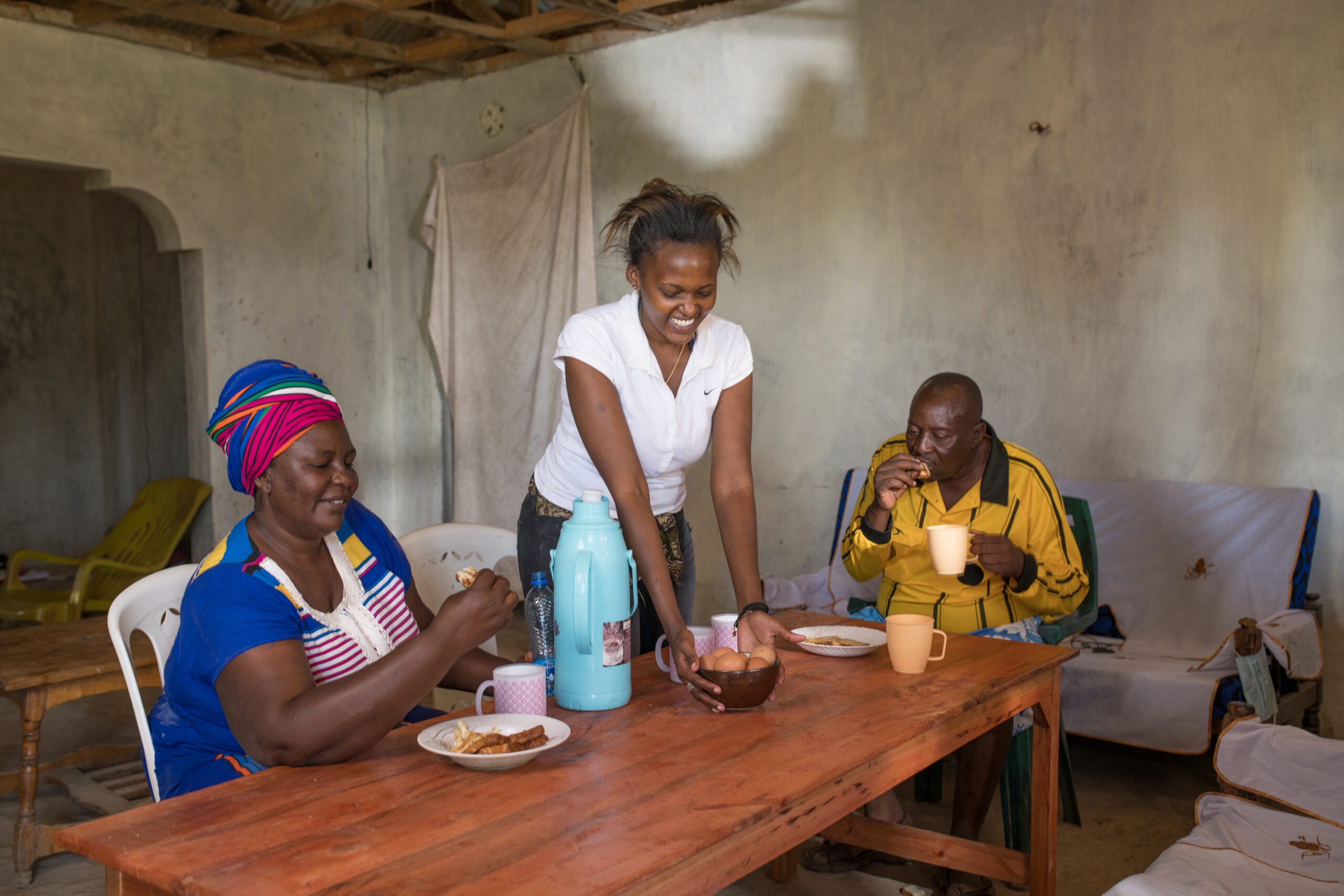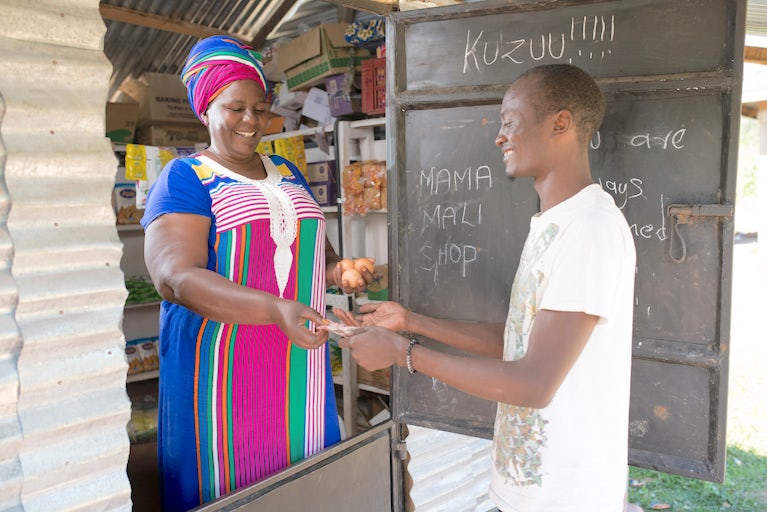Eggs are a highly nutritious food, rich in essential fatty acids, choline, vitamins A and B12, as well as bioavailable iron, zinc and iodine. The protein in egg white — known as albumen — is abundant, digestible and packed with amino acids. Egg yolks are a source of fat and calories, and the entire egg is neatly packaged in a protective shell that keeps what’s inside fresh without refrigeration.
Eggs are also delicious. But most importantly, these oval ova are a sustainable source of food that can help the world reach the second Sustainable Development Goal: zero hunger.
Yet eggs have been shown to be infrequently consumed in many low-income countries, especially by women and children. In some areas of Kenya, as in many parts of the world, cultural practices and prevailing beliefs about what kinds of foods are suitable for pregnant women and children limit food options in an already food insecure environment.

Rosemary Odongo knows firsthand the damage that such practices can have. As a smallholder farmer in rural Kenya, she and her family have learned to enjoy eggs as part of their diet after she was educated on the importance of a balanced diet.
“In our tradition, women and girls are not supposed to eat eggs or chicken,” she explained. “But we have been taught and we have been trained that those are just superstitions. Girls and boys in our family, we eat chicken once a week and eggs every day.”
Through the Hatching Hope Global Initiative, Heifer International and Cargill are working to promote backyard poultry as a source of food and income in underserved communities. The initiative recognizes that raising chickens is one of the most practical — and sustainable — paths out of poverty for rural communities.
Odongo is taking her knowledge a step further, by selling her eggs to her community and telling everyone about what she’s learned.

“We eat eggs on bread, just boiled. We also like eggs with ugali [a corn flour porridge] and chapati [a flatbread] and chicken,” she explained, while demonstrating how she feeds and waters her flock of 150 chickens.
Education and training on nutrition and income are an important pillar of Heifer’s work in communities like Odongo’s, where information on best practices for farmers and business owners can go a long way toward improving lives and building a better future.

“Before, I used to keep the birds around the house. Now I take care of them,” Odongo said. “I feed them; I clean for them; I vaccinate them. I treat them like birds for business.”
Odongo’s entire family works alongside her to keep the flock healthy and well-fed. Her children like collecting the eggs in the morning and evening.
“It’s a family business,” she said. “But I don’t sell all my eggs. Almost every day we like to consume them at our table.”

